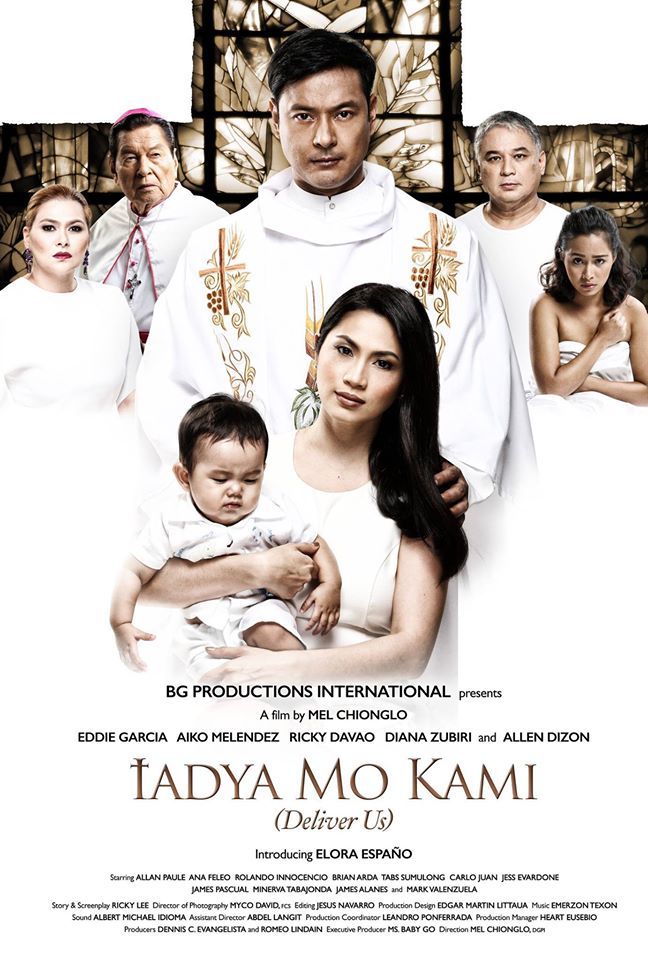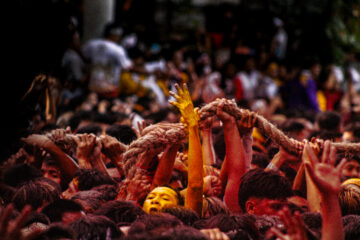
IT IS through rose-tinted spectacles that man perceives the social order, making him selective and indifferent to the troubles burdening him at the present time. Director Mel Chionglo deviates from the typical themes used in films and transgresses to expose one of the ills in today’s society with his movie “Iadya Mo Kami” (Deliver Us). Through the power of cinema, he concentrates on a controversy that silently plagues not only the Catholic Church but also man’s reality.
The film brings to life Greg (Allen Dizon), a diocesan priest who has broken his vow of chastity by siring a child with his lover Carla (Diana Zubiri). Living as a sinner himself, his life plunges deeper into the realm of immorality as he moves up to the town of Placido for his reassignment as its next parochial priest. In his stay, he encounters characters resembling different sins—Father Alejo (Rolando Inocencio) who is fond of drinking liquor, the pedophile Julian (Ricky Davao) and his barren wife Millet (Aiko Melendez) who aids him in raping their assistant, Sabel (Elora Españo). It is the mysterious death of Julian that makes Greg rethink of everything he has done. Although he decides to search for his killer and finds out that it is Sabel, he chooses to sin once more for the salvation of another—he lets Carla take her away—before he takes his final resolve.
The movie shows a well-depicted view of the ever-growing problem with oxymoronic clergy members in the Philippines. Vowed to serve the Almighty before anything else, they choose to break their holy oath and seek their inner desires. Greg becomes their epitome, a representation of the weak nature of man—that when temptations kick in, he easily gets persuaded. Moreover, it is impossible for Greg not be lured for his environment is a mixture of all the heinous sins ever known—sexual assault, the spirit of alcohol, the sound of gunshots, and the thirst for sex. Greg struggles to be a dove among a murder of crows.
Even so, there are still some birds that succeeded in fleeing from the darkness. In the case of the bishop (Eddie Garcia), he maintained his divine state without surrendering to any of the enticements. His character serves as a moral compass not just for priests but for humankind as well. In one of their talks, he precisely describes Greg’s predicament with his line: “The spirit is winning, but the body refuses to cooperate.”
In the end, Greg decides to leave Placido. This act seems as if he is leaving all his malefactions behind and wants to start anew—a life devoted to mercy and compassion, after self-examination. His act of redemption manifested in the final scene in which he is seen in the huge crowd during the visit of Pope Francis in the country.
“Iadya Mo Kami”, with its blunt yet commendable exposition, successfully unveils in front of the viewers’ eyes a societal problem that has never been given any solution for its cessation. Indeed, even the holiest is susceptible to the evils lurking in the shadows for it is in his nature to sin. F ZYMON ARVINDALE R. DYKEE



